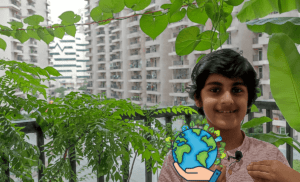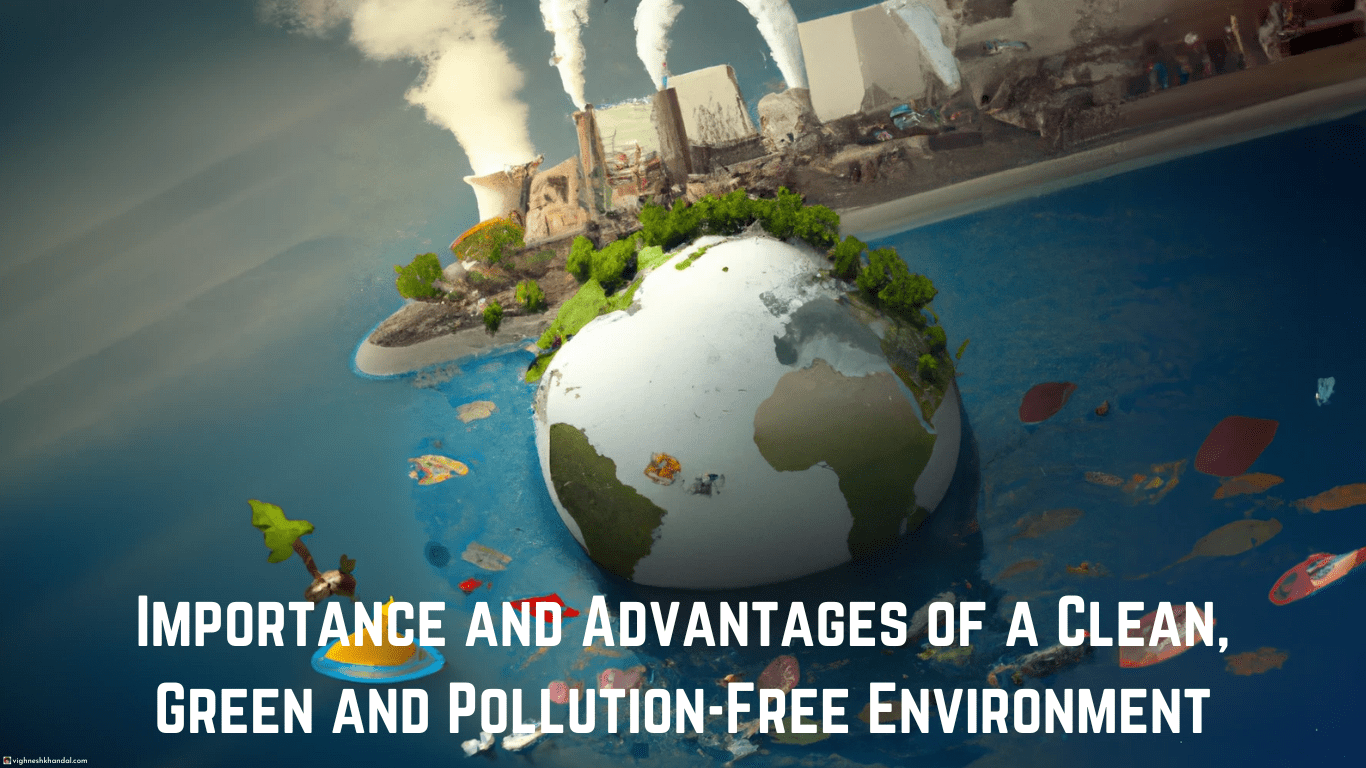There are many ways to keep our environment clean and pollution-free. There are simple tips to follow, such as using a water heater with a lower temperature than usual, buying energy-efficient appliances, and reducing energy consumption.
Avoiding toxic materials in the home is also a great way to keep our planet clean. When disposing of waste, it is also essential to keep separate dustbins for different materials and be aware of proper hygiene.

Reducing Carbon Footprints
The most effective way to reduce carbon footprints is to consider how you consume certain items. You may have noticed the packaging of some items, such as a juice carton or beer can.
If so, you may have a higher carbon footprint than if you used a glass or plastic bottle. Also, cement production contributes to emissions of greenhouse gases. Even your home’s energy usage contributes to your carbon footprint.
Using public transportation or ride-sharing services can reduce your carbon footprint. Instead of using a car, consider buying an electric or hybrid one. You can also opt to use solar power instead of fossil fuels.
This alternative energy source is cleaner and does not have as much carbon footprint as fossil fuels. It is also easier on your wallet. Many businesses are moving toward renewable energy, and you can join the movement by switching from fossil fuels to alternative sources.
Air travel is another primary source of carbon emissions. If you need to fly frequently, consider taking a train instead of a plane. You can also take public transportation instead of your car. By making this change, you can significantly impact the environment and save thousands of dollars on fuel.
This is a small step, but it will make a huge difference. You can also offset your carbon footprint by purchasing an airline ticket with TerraPass, a company specializing in green travel.

Learn How Recycling Keeps Our Environment Clean?
Knowing what you can recycle and where to find a recycling bin in your area. Some cities offer curbside collection, while others have away-from-home programs. Recycling bins can be found at many grocery stores, gas stations, and parks.
Recycling bins can help you to recycle more and reduce the amount of waste that you create. Recycling programs differ by city, county, and even region. To help make recycling easy and convenient for everyone, check with your city or county for more information.
The World Bank has released a report on the waste generated in various parts of the world. The number of items requiring disposal is growing steadily.
It’s becoming increasingly complex and costly. Countries such as China, Argentina, Morocco, and Brazil are experiencing severe problems with waste management.
By recycling, you can reduce the amount of waste that ends up in landfills and save money on disposal costs. In addition to saving money, recycling can help protect our watersheds, biodiversity, and soil stability.
In addition to keeping our environment clean, recycling helps us to save space and energy. By reducing the amount of waste that goes into landfills, we are preventing the pollution that goes into the atmosphere and water.
In addition to reducing the amount of waste generated in landfills, recycling also provides valuable raw materials to industry, which reduces the need to develop new landfills.
Recycling also creates new jobs. All of these benefits contribute to the future of our environment and our children.

Planting Trees
Trees have several benefits, including improving the health and mental well-being of people living around them. They prevent soil erosion and reduce the force of rainwater falling to the ground.
They also increase soil moisture and improve air quality. Moreover, trees provide a habitat for many different animals, such as birds, bats, and squirrels.
These animals, in turn, greatly benefit the environment. They also contribute to the aesthetics of any landscape.
The physical barriers erected by trees prevent pollution from reaching people. They are equivalent to brick walls, preventing airborne particles from reaching people.
Furthermore, they disperse pollutants by providing a surface for the particles to deposit. As a result, air pollution is more dispersed, and pollutants are not trapped between the tree’s leaves or bark.
Scientists widely recognize these benefits of tree planting. To make this possible, city planners should consider several aspects of the urban environment.
While trees may be valuable, they may also negatively affect our environment. For instance, the construction of concrete and asphalt in cities can increase heat island conditions, making the urban areas warmer than their surrounding areas.
In such a case, planting a tree in an urban setting may result in localized pollution, but it can reduce the movement of pollutants and mask noise pollution.
Overall, however, the benefits of planting trees outweigh the drawbacks. Proper selection of species and care can significantly reduce the likelihood of these consequences.

Avoiding Over-Fertilizing
In addition to harming plants, over-fertilizing can also be harmful to waterways. Excess fertilizer can enter waterways and groundwater. This fertilizer can also poison beneficial insects and plants further up the food chain.
Often, the cost of over-fertilizing a lawn is prohibitive compared to the cost of a clean water supply. So, there are many reasons to avoid over-fertilizing your lawn and garden.
Fertilizers are a popular way to supply plants with nutrients. They come in a convenient, easy-to-apply form. Most fertilizers are applied to soil when young plants or seeds are planted.
But it is essential to know when to stop fertilizing because too much fertilizer can damage the plant or cause it to die. Excess fertilizer can also lead to toxic algal blooms that harm human health and aquatic life.
Fertilizer runoff is a significant contributor to water pollution. Most of the nutrients in waterways come from agriculture and livestock, but lawns contribute more than you might think.
North American homeowners routinely over-fertilize their lawns, and according to the Environmental Protection Agency (EPA), up to 40% of the fertilizers applied to end up in surface water. While these numbers may seem low, the effects on our waterways are worth considering.

Avoiding Toxic Materials
We are all subject to exposure to toxins from everyday products. We can avoid exposure to toxins by making informed decisions about our choices. In the U.S., we have the power to reduce exposure through the use of cleaners and other safer products.
Keeping our environment clean and healthy is a top priority of the Centers for Disease Control and Prevention. In addition to educating the public about the harmful effects of toxic substances, WEC works with policymakers to protect our health and environment.
Toxic materials are in many products, but not all of them are dangerous. Keeping your household free of harmful chemicals means knowing which products you use and clearing them out.
Household products that contain potentially toxic substances include building materials, cleaning products, furniture, carpet, shower curtains, and cookware. Whenever possible, choose products that use only natural ingredients. For example, choosing natural cleaning products is an environmentally friendly option.
It is best to avoid using products with warning labels because these chemicals can carry traces of toxic materials from your hands to your mouth and eyes. Using soft contact lenses is another way to avoid exposure to toxic chemicals. Moreover, sealing products will prevent fumes and spills.
These products should be used only after a thorough analysis of their potential effects on your health. You should also avoid using these products on pregnant women’s bodies.
Maintaining Personal Hygiene
Keeping our environment clean is essential for human health, and maintaining personal hygiene is one of the most effective ways to protect our planet. Various factors can contribute to poor personal hygiene, including poor access to clean water and sanitation, mental health, and poverty.
People with certain conditions can also find it challenging to maintain their hygiene routine. For these reasons, there are many ways to promote personal hygiene and keep our environment clean.
Personal hygiene is essential for everyone and can prevent infectious and gastrointestinal diseases. By washing your hands frequently and using hand sanitiser, you prevent the spread of germs.
This includes germs that are spread through touching people, handling feces, or coming into contact with dirty surfaces. To learn more about how to keep your environment clean, visit Healthy Living Center. You can also visit this site for helpful tips on maintaining personal hygiene.
Personal hygiene refers to the habits you adopt to ensure the cleanliness of your clothes, face, and body. It includes frequent hand washing and bathing. In many parts of the world, there is no clean water. When people get sick, they transfer infectious diseases to their surroundings.
It is essential to practice good personal hygiene so that others will not catch an infection from you. Keeping our environment clean and free of harmful pollutants is also important.

Avoiding Excessive Noise [Help Keep the Environment Clean]
Noisy cities are not a welcome sight, and finding ways to reduce them is essential. Smoother roads and better traffic flow management are two methods that can reduce the noise levels in city centres. Some cities have implemented projects to mask noise from traffic, place pleasing sounds in city centres, and raise awareness of using less noisy modes of transport. But many noise complaints are caused by the proximity of the businesses to residential areas.
Noise pollution is a significant issue and hurts our health. It can be irritating to our senses but also harmful to living things.
According to the European Environment Agency, noise is responsible for nearly 72,000 hospital admissions and 16600 premature deaths each year in Europe.
The WHO recommends that we minimize noise to keep our environment healthy. It also encourages us to be environmentally aware and teaches our children to be more conscious of noise.
Noise pollution can be prevented by wearing hearing protection when exposed to loud sounds. This can be in the form of ear plugs or ear muffs. Noise pollution can also be prevented by moving away from noisy areas.
We can use ambient soundscapes or a fan if we do not want hearing protection. If these measures are insufficient, we can use alternative methods such as earphones or earplugs.


